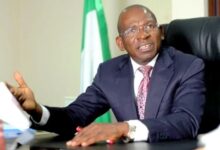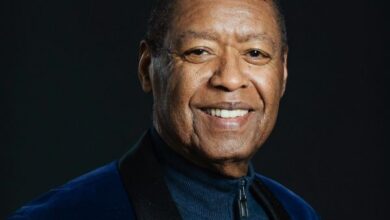ITU elects first female scribe
 Member States of the International Telecommunication Union (ITU) have elected Ms Doreen Bogdan-Martin of the USA as the organisation’s next Secretary-General.
Member States of the International Telecommunication Union (ITU) have elected Ms Doreen Bogdan-Martin of the USA as the organisation’s next Secretary-General.
The organisation, which made this known on their website on Thursday said Bogdan-Martin won the position with 139 votes, out of 172 votes cast, which made her the first woman to lead ITU.
Bogdan-Martin was endorsed by her country’s government as a candidate to make the digital future inclusive and accessible for everyone, especially in developing countries.
US President, Joe Biden, in a Sept. 20 statement backing her candidacy, said: “Ms Bogdan-Martin possesses the integrity, experience, and vision necessary to transform the digital landscape.”
Bogdan-Martin, in her acceptance speech, said the world was faced with significant challenges like escalating conflicts, climate crisis, food security and needed to be provided with a strong and stable foundation for growth.
The Secretary-General-elect, whose four-year term would commence on Jan. 1, 2023, pledged to continue driving the institution to be innovative and increasingly relevant for Member States
She also said that there would be a better positioning for all to embrace the digital environment and make progress on achieving UN SDGs and connecting the unconnected.
Bogdan-Martin said: “Whether it’s today’s children or our children’s children, we need to provide them with a strong and stable foundation for growth.
“I believe we, the ITU and our members, have an opportunity to make a transformational contribution. Continuous innovation can and will be a key enabler to facilitate resolution of many of these issues.”
She, however, had held leadership positions in international telecommunications policy for over two decades.
Throughout her career, Bogdan-Martin had brokered innovative and visionary partnerships with the private sector, civil society, and other UN agencies to accelerate digital inclusion and connectivity.
She also emphasised the need for job creation, skills development, gender equality, and socio-economic inclusion, as well as to build circular economies, reduce climate impact, and save lives.
Other positions are : Telecommunication Standardisation Bureau and Telecommunication Development Bureau Directors, respectively.
The voting for ITU’s senior leadership will be followed by elections for the 12-member Radio Regulations Board and for regionally allocated Member State places on the 48-seat ITU Council.
This governs ITU between quadrennial Plenipotentiary Conferences.
The union is the UN specialised agency for Information and Communication Technologies (ICTs), driving innovation together with 193 Member States.










